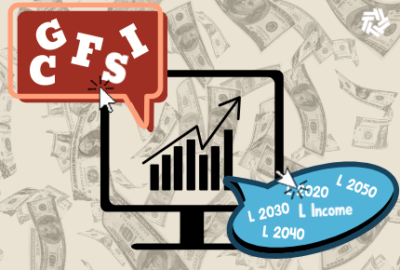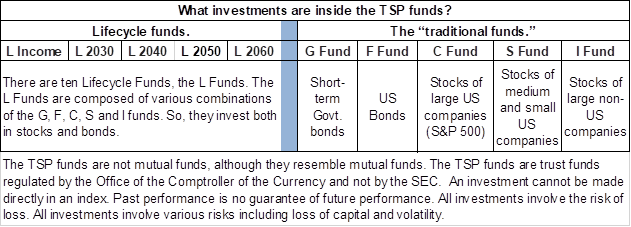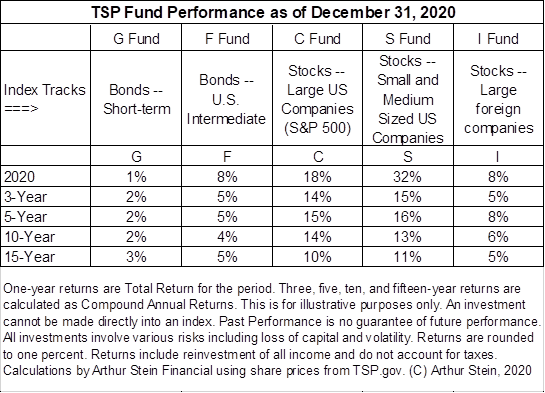
Your TSP’s stock and bond funds: Which is safest?
Financial planner Arthur Stein says that many feds don’t understand that their TSP retirement nest egg is not really an investment.
When people go into something like the Thrift Savings Plan, they think of it as a long term investment. Most believe that things like the bond-index F fund and the treasury securities G fund are the safest. Most also concede — and the long term numbers bear it out — that stocks outperform bonds over time. But what about the F fund out performing the G fund? If that’s the case, and the numbers show it to be true, which is the safest?
Financial planner Arthur Stein says that “safe” is a relative term. And he also says many feds don’t understand that their TSP retirement nest egg is not really an investment. He’ll be my guest today at 10 a.m. EST on Your Turn. You can listen live here or on the radio in the D.C. area at 1500 AM. Stein has lots of clients who are feds, active and retired. Some of them have more than a million dollars in their TSP account. Here’s the guest column he wrote to explain the “investment” part of your TSP.
If you have questions, send them to me before showtime. Meantime, here’s what he wrote:
Are TSP Funds Really an Investment?
Your TSP account is not an investment. The TSP Funds are not investments. Your account and the funds in it are a way to own two different investments – stocks and bonds. Depending on the fund you choose, your money is used to purchase either stocks, bonds or, if you use the L Funds, both stocks and bonds.
By choosing different funds, you determine the allocation between stocks and bonds and the types of stocks and bonds in your TSP account.
This is important because stocks and bonds have very different historical records for performance and volatility.
Over longer time periods, the stock funds usually outperformed the bond funds.
Past performance is no guarantee of future performance and, except for G, all funds carry the risk of loss. However, I do not know anyone predicting that bonds will outperform stocks over long periods of time in the future.
Over both short-term and long-term time periods, the stock funds were much more volatile than the bond funds.
Nearly Useless Factoid
Source: Abraham Lincoln Online
Copyright © 2024 Federal News Network. All rights reserved. This website is not intended for users located within the European Economic Area.
Mike Causey is senior correspondent for Federal News Network and writes his daily Federal Report column on federal employees’ pay, benefits and retirement.
Follow @mcauseyWFED
Related Stories







